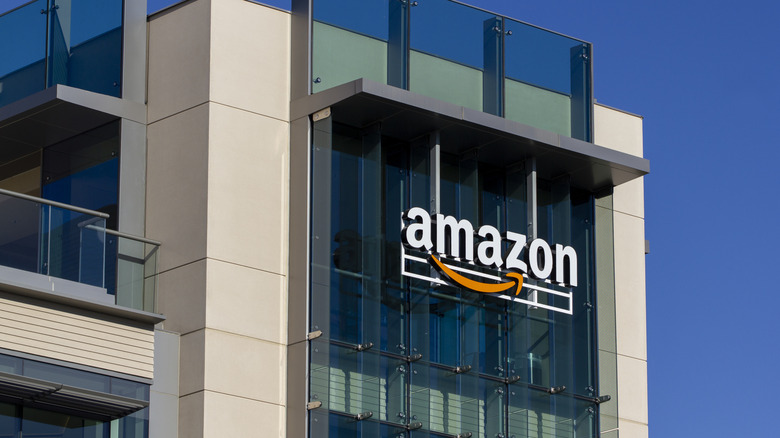The Latest Lawsuit Against Amazon Is A Battle Cry For A Better Film Future
There may be no more despicable scam in home entertainment right now than the "buy" option on digital movies offered by streamers like Amazon Prime Video, Google Play, and longtime offender Apple TV+. When you buy a good outright, it is yours in perpetuity unless you decide to sell it. This is settled law and, really, should go without saying. But the advent of digital ownership has thrown a spanner into the works, and now consumers, who have discovered that their media purchase can get yoinked from their account at any time, are fighting back in the courts.
On August 22, 2025, Lisa Reingold filed a potential class action lawsuit in federal court against Amazon (via The Hollywood Reporter), alleging that the company misled her when she bought Nickelodeon's cheerleader-turned-quarterback series "Bella and the Bulldogs — Volume 4." This is the second such lawsuit that has been brought against the Jeff Bezos-owned company. In 2020, Californian Amanda Caudel sued Amazon for unfair competition and false advertising, claiming the company "secretly reserves the right" to terminate users' access to media they've bought instead of rented. The case was ultimately dismissed, but this time, Amazon might not be so lucky.
A recently enacted California law stipulates that any up-front language signifying that the user has bought or purchased a digital product must directly inform the customer that the streaming service reserves the right to remove said media at any time. Depending on how the law is interpreted legally, the read-the-fine-print defense could go down in flames. If so, this could potentially impact the theatrical exhibition industry in a very positive way.
Amazon is challenging the definition of 'buy'
Hollywood has long justified its tightening of the theatrical exhibition window by offering new releases for rent at premium prices as soon as just a few weeks after a major film hits multiplexes. It's also emboldened streaming services to encourage their users to "buy" movies and television shows, the idea being that this media will always be there for subscribers to view.
I used to do this on occasion when a certain movie was unavailable to stream/rent on other services or if I'd skipped a blockbuster in theaters. (According to my Amazon purchase history, I shelled out $25 for "X-Men: Days of Future Past" in 2014.) But because I am an avid fan of science-fiction and skeptical of big business while living in a country where laws are bent and, nowadays, broken for their benefit, I never, ever believed I'd made a permanent purchase. Ultimately, I went back to buying physical media, and I am happy to have done so.
Alas, many films and series never receive the physical media treatment. So, if, like Ms. Reingold, you happen to be a diehard fan of the mid 2010s Nickelodeon series "Bella and the Bulldogs," you might've leapt at the opportunity to buy one of its four seasons on Prime Video for $20.79. And you surely would've been miffed when your purchase disappeared from your streaming library.
Legally, I have no idea how this will play out, but if more courts apply that California law, the "buy" option on streaming services could go away for good — which would be excellent news for theatrical exhibitors and producers of physical media. Again, I'm skeptical that Amazon won't use its massive legal and political influence to get this suit bounced out of the courts like it did with the 2020 case, but for now I choose to be hopeful that Ms. Reingold will prevail. Because when we try to re-litigate the meaning of "buy," we are heading into treacherous, consumer-unfriendly waters.

